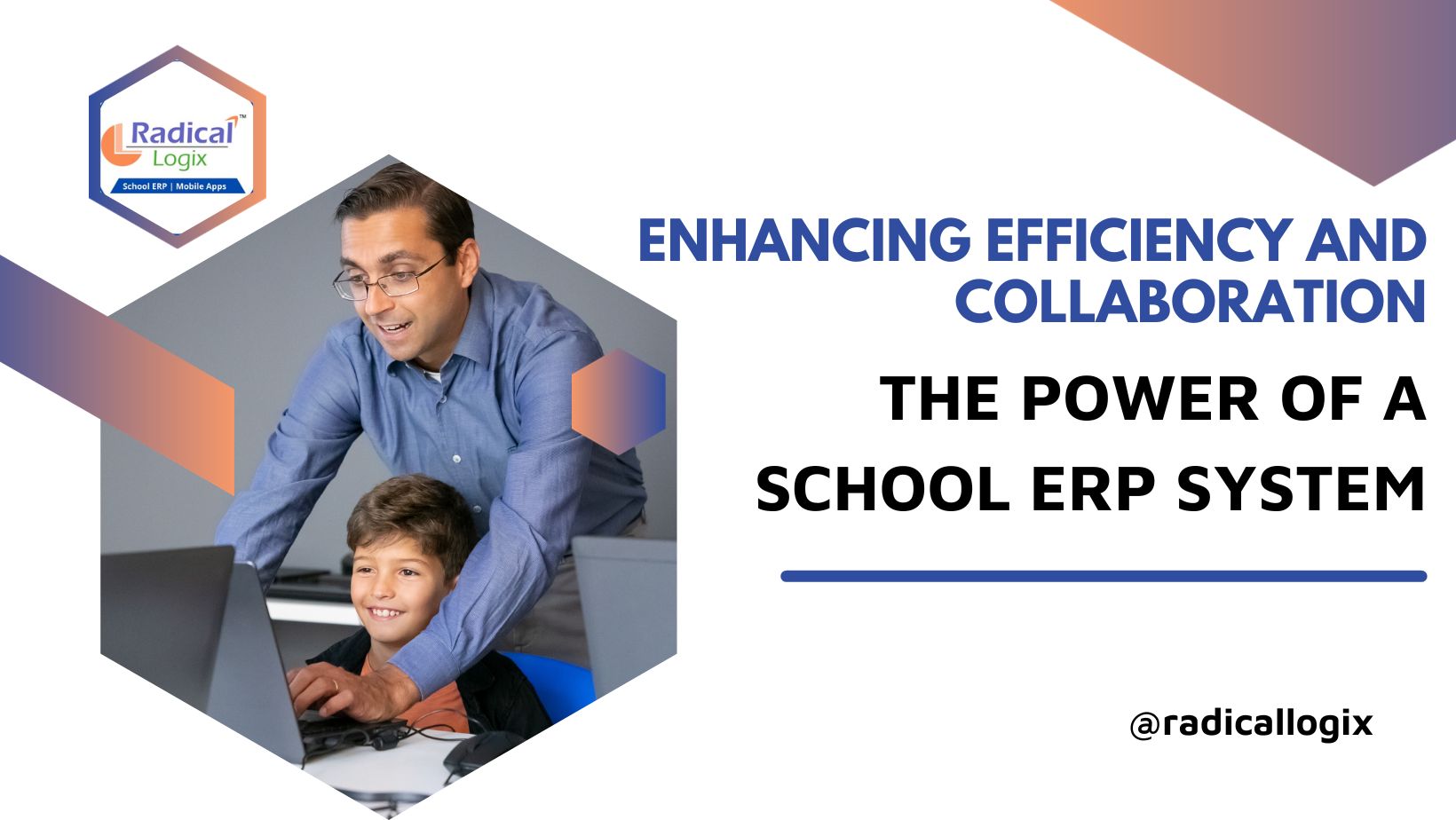Enhancing Efficiency and Collaboration: The Power of a School ERP System

In the ever-changing world of contemporary education, schools increasingly use technology to improve communication, expedite administrative procedures, and create more effective learning environments. Enterprise Resource Planning, ERP for schools is one such technological innovation that has gained popularity in educational institutions across the globe. This article will explore the key features, benefits, and considerations of School ERP systems.
This blog will deal with various aspects highlighting the importance of school mobile app for teachers.
Understanding School ERP
School ERP systems in Delhi serve as a single point of contact for all student data, including contact details, grades, attendance records, and enrollment information. This guarantees that parents, teachers, and administrators have access to accurate and up-to-date information. School Enterprise Resource Planning (ERP) systems help schools manage their human resources. This covers payroll processing, monitoring employee attendance, and evaluating employee performance. Various aspects of ERP for schools have been described below:
- Simplified Attendance monitoring: Automating attendance monitoring is a key component of school enterprise resource planning (ERP) systems. This streamlines the process for educators and encourages accountability by giving parents real-time information on their child's attendance.
- Effective Grade and Exam Management: With the help of these solutions, managing grades and tests is easier. Instructors can create report cards, enter grades, and assess student progress. This feature makes it easier to monitor academic achievement and pinpoint areas that need work.
- Collaboration and Effective Communication: Teachers, students, and parents can communicate easily, thanks to school ERP software. Notifications, forums, and message systems are examples of features that improve communication and inform all parties involved.
- Clear Fee Management: Online payment alternatives, fee reminders, and clear financial records are provided by ERP systems, which automate fee collecting and management. This improves financial accountability and lowers manual errors.
- Library Management: They assist in tracking book availability, managing library catalogs, and automating the borrowing and return procedures for schools with libraries. This guarantees smooth library operations and improves the availability of learning materials.
Benefits of School ERP Systems
- Enhanced Efficiency and Time Savings: School ERP Systems' advantages include increased productivity and time savings. Administrative chore automation boosts productivity and frees up time for administrators and teachers alike.
- Better Collaboration and Communication: Enhanced communication features encourage more effective cooperation between educators, parents, and students, resulting in a more involved learning community.
- Precise Data Handling: By centralizing data handling, errors in administrative duties are less likely to occur, and correctness is guaranteed.
- Making Informed Decisions: School administrators are more equipped to decide on curriculum, resource allocation, and general school management when they can access extensive data and analytics.
- Parental Involvement: By providing real-time information on student performance, attendance, and teacher-student communication, ERP systems promote parental involvement.
- Financial Openness: By offering openness in fee management, budgeting, and financial transactions, ERP systems' financial modules promote accountability.
- Scalability: School ERPs can be used in various school sizes because they are made to grow with the educational institutions' demands.
- Regulatory Compliance: ERP systems assist educational institutions in meeting legal obligations and standards, guaranteeing adherence to national and international laws.
Considerations for Choosing School ERP Systems
- Evaluation of Particular Needs: Prioritising their needs and goals is crucial for schools when selecting a school enterprise resource management system. It's possible that various institutions would need different functions.
- User-Friendly Interface: Successful adoption depends on having an interface that is easy to use. Administrators, educators, parents, and students should all find the system user-friendly and intuitive.
- Customization Options: For the ERP system to perform as best, it must be possible to modify it per the school's particular needs.
- Making Informed Decisions: School administrators are more equipped to decide on curriculum, resource allocation, and general school management when they can access extensive data and analytics.
- Training and Support: Adequate training and ongoing support are crucial for successful implementation. Schools should ensure administrators and staff are well-equipped to use the system effectively.
- Integration with Current Systems: Protecting sensitive student information must be a top priority for schools. The selected ERP system should implement strong security measures to safeguard staff and student data.
- Data Security Measures:Protecting sensitive student information must be a top priority for schools. The selected ERP system should implement strong security measures to safeguard staff and student data.
- Cost considerations:: Considering the long-term advantages and return on investment, the cost of developing and maintaining a school ERP system should be carefully considered.
The Bottom Line
ERP for Schools is now an essential resource for academic institutions trying to streamline and modernize their administrative procedures. These solutions help create a more effective and knowledgeable educational atmosphere by offering a centralized platform for data administration, communication, and collaboration. When deciding which ERP system to use, schools should carefully assess their needs, select a solution that fits their objectives, and ensure they have the right support and training to guarantee a successful installation. School ERP systems have the potential to significantly influence how education is shaped in the future as technology advances.



